Incident Command
Empowering people to think beyond their own department

When news of COVID first emerged in January 2020, CentraCare implemented an Incident Command System to deal with the anticipated influx of patients and the many other unknowns the pandemic would bring. This management structure helped provide a standardized approach to emergency response and connected teams in ways that allowed for quick decisions and better support to frontline staff.
“The challenge we faced with COVID was, we started an incident command and then the event – COVID – just kept going,” said Dr. George Morris, VP for Performance Excellence at CentraCare. For much of the pandemic, Dr. Morris and Craig Henneman, Executive Director of Surgical Services at CentraCare, managed incident command together.
Morris said the incident command structure empowers people to think beyond their own department.
“Craig’s a great example of that,” said Morris. “All throughout COVID he had to either lead orthopedics or lead all of surgery. And meanwhile, we asked him to step up multiple layers in the organization to think broadly. You kind of layer that on top of everybody’s regular job, but it enables you to have quick communication, quick feedback, and quick and valuable decisions, not just random decisions.”
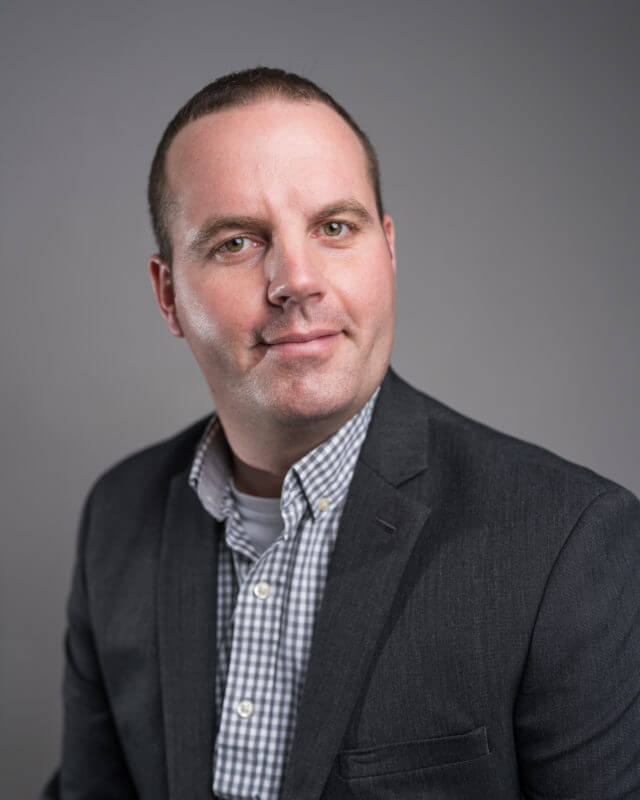
A key element of a successful incident command is maintaining clear and consistent communication with all staff:
“I think whether an individual is part of an incident command structure or not, they have a community responsibility,” said Henneman. “So our priority was giving our staff transparent information, up-to-date information, knowing that whether it’s a family member or someone you interact with in the community when you go to the grocery store, that staff have the information at hand to answer questions. So I think whether you were part of the incident command structure here or not, you truly were a resource to the community.”
Morris says much of his work involved finding out what was working, and then disseminating that information.
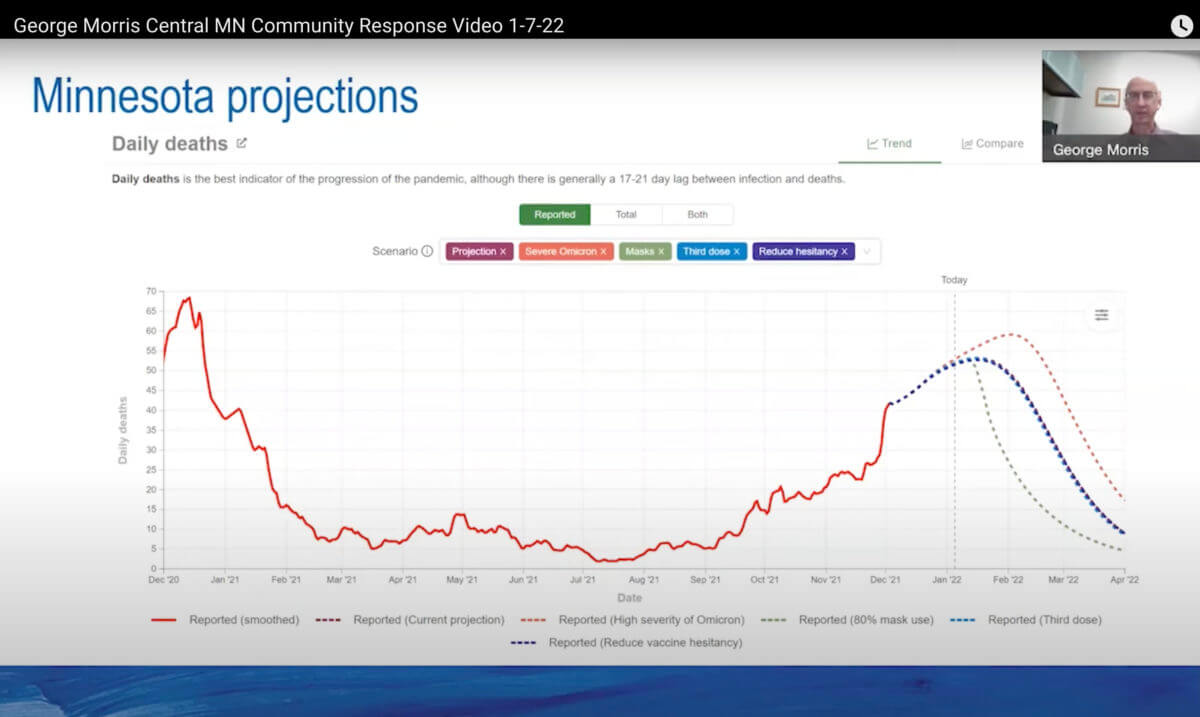
“The term ‘incident command’ has a feeling of ‘command and control,’ where we’re going to tell you what to do,” said Morris. “Heck, no! A lot of it was listening, learning and sharing. We were accountable for the decisions made, but that didn’t mean we made those decisions in isolation. We went and learned what was effective in other places. Our job was to listen, see what was working, make some of those connections and give that overall direction to the teams.”
One of the greatest challenges of leading during an emergency is making important decisions while not having all the information necessary. Morris says they used key principles to help guide them.
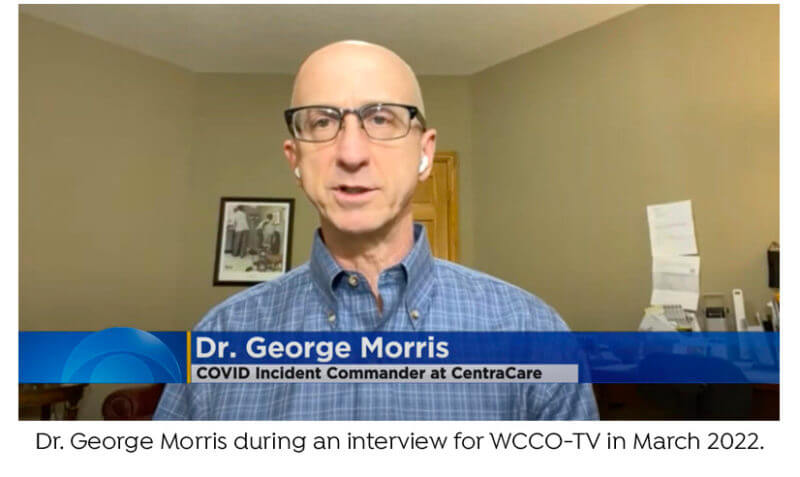
“One is we wanted to make sure all of our decisions and directions kept in mind the safety of our patients, the safety of our staff, and the safety of our community,” said Morris. “Now, that doesn’t mean that one took precedence over the other. And it doesn’t mean that we didn’t make hard choices. But it was a balance of those three key safety principles. And then the other ones that we really kept at our core were the concepts of trust, compassion, stability, and hope.”
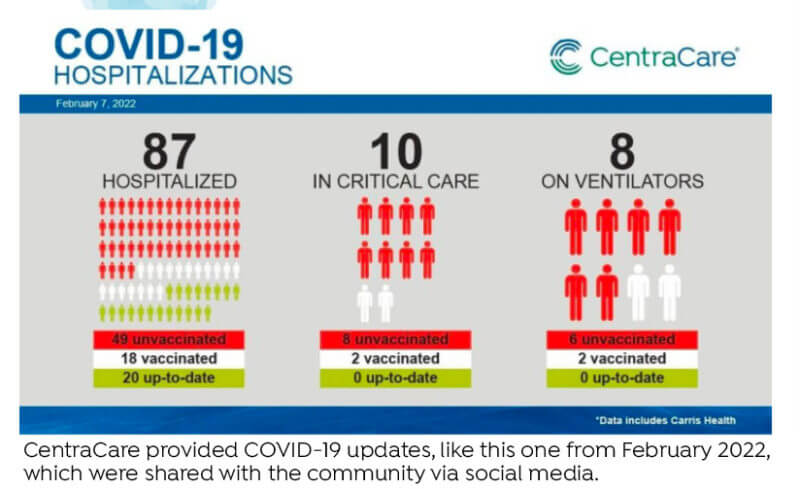
Henneman stresses that he and Morris have immense respect and gratitude for everyone who stepped up to do the work.
“We’re not the doers, right?” said Henneman. “We were the people that helped to remove barriers. How do we support the frontline staff knowing that decisions have to be made quickly, because if we didn’t make them the time would come and go where it wouldn’t have had the impact that we wanted it to. So really we were helping support those teams… and we had a phenomenal team and frontline staff doing the work and we just helped to support it.”
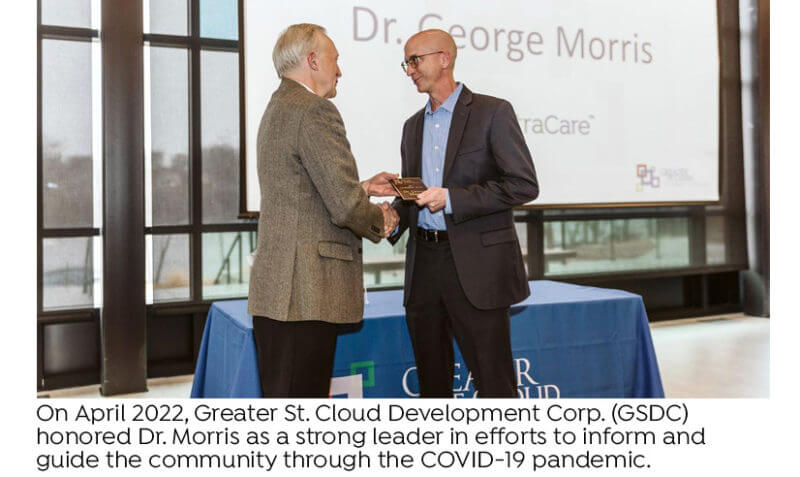
Looking back, Morris says it’s amazing what CentraCare’s staff accomplished together.
“Boy, when we band everybody together, oh my gosh can we move mountains,” said Morris. “In essence, we demonstrated what we can do across the state. A lot of times we focus on what we did for CentraCare and in our communities. But you know, we had our ICU doctors helping train people in a lot of non-CentraCare places on how to do ventilator management, how to help support their nurses, how to manage different medications, protocols. Truly, I think the weight that we can carry using our people is tremendous and it’s something that we can lean on whether it’s for the next pandemic, or for whatever change comes next.”


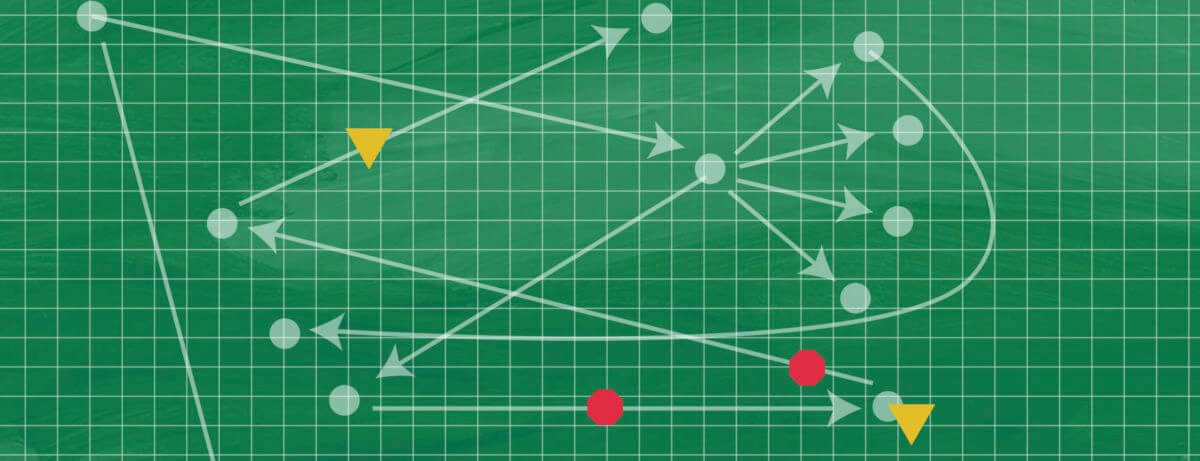






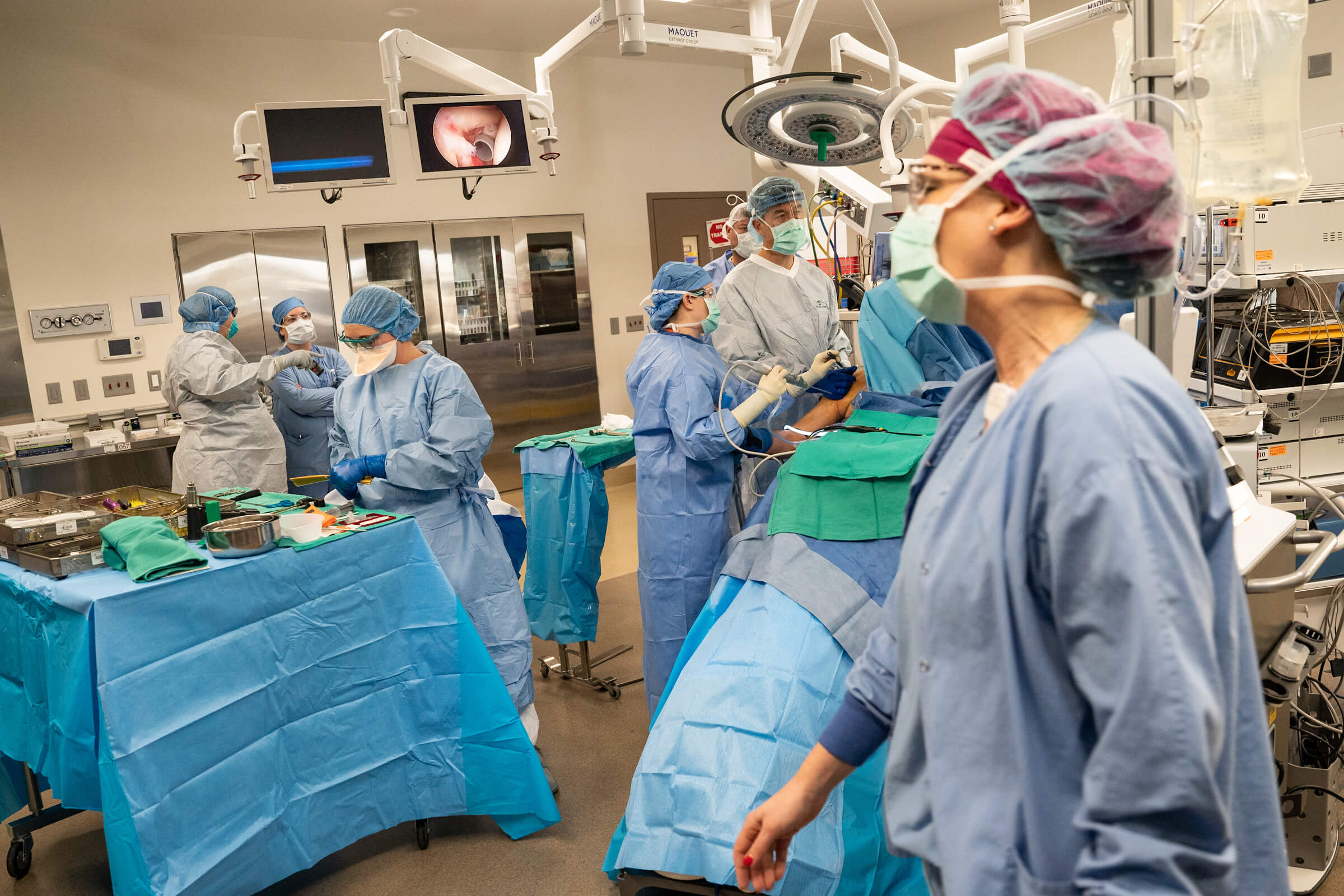
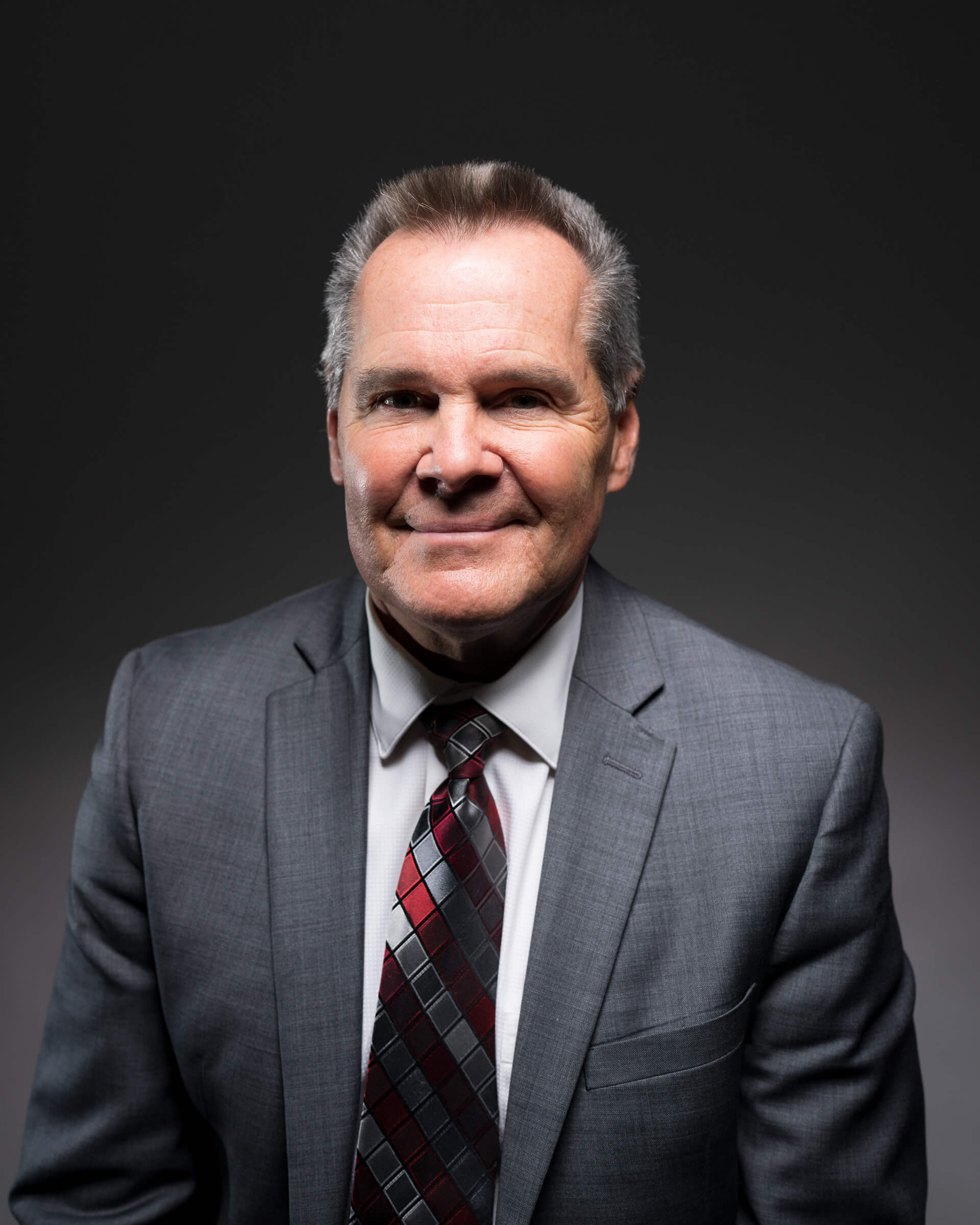
Thank you so much!